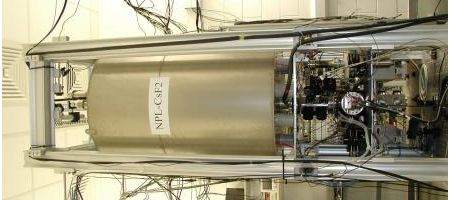A caesium fountain clock that keeps the United Kingdom’s atomic time is now the most accurate long-term timekeeper in the world, according to a new evaluation – twice as accurate as was previously believed.

The clock is one of a group of caesium fountain clocks built by timing labs in Europe, the US and Japan as their national primary frequency standard for the measurement of time.
These national standards are averaged to produce International Atomic Time and Universal Coordinated Time, which are used as time scales for such critical processes as global communications, satellite navigation and surveying, as well as time stamping for the financial and stock markets.
Scientists estimate the accuracy of a caesium fountain clock by evaluating the uncertainties of all the physical effects known to cause frequency shifts in the clock’s operation.
These include atomic interactions with external fields, collisions between atoms, and the construction of the atomic clock’s subsystems, such as its microwave cavity. The two largest sources of these measurement uncertainties are frequency shifts caused by the Doppler effect and microwave-lensing.
“The improvements that we report in our paper have reduced significantly the caesium fountain clock’s two largest sources of measurement uncertainties – Doppler shifts and the microwave-lensing frequency shift,” says National Physical Laboratory (NPL) project leader Krzysztof Szymaniec.
“Together with other improvements of the caesium fountain, these models and numerical calculations have improved the accuracy of the UK’s caesium fountain clock , NPL-CsF2, by reducing the uncertainty to 2.3 × 10-16 – the lowest value for any primary national standard so far.”
It’s so accurate that it would lose or gain less than a second in 138 million years.






